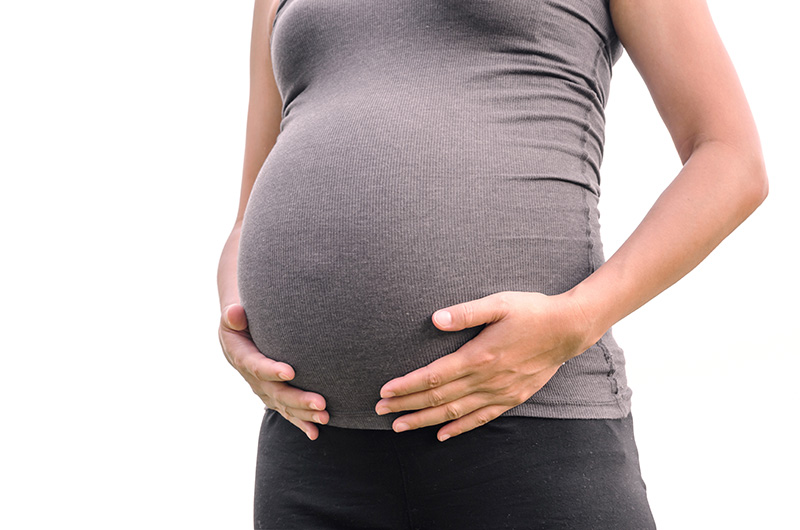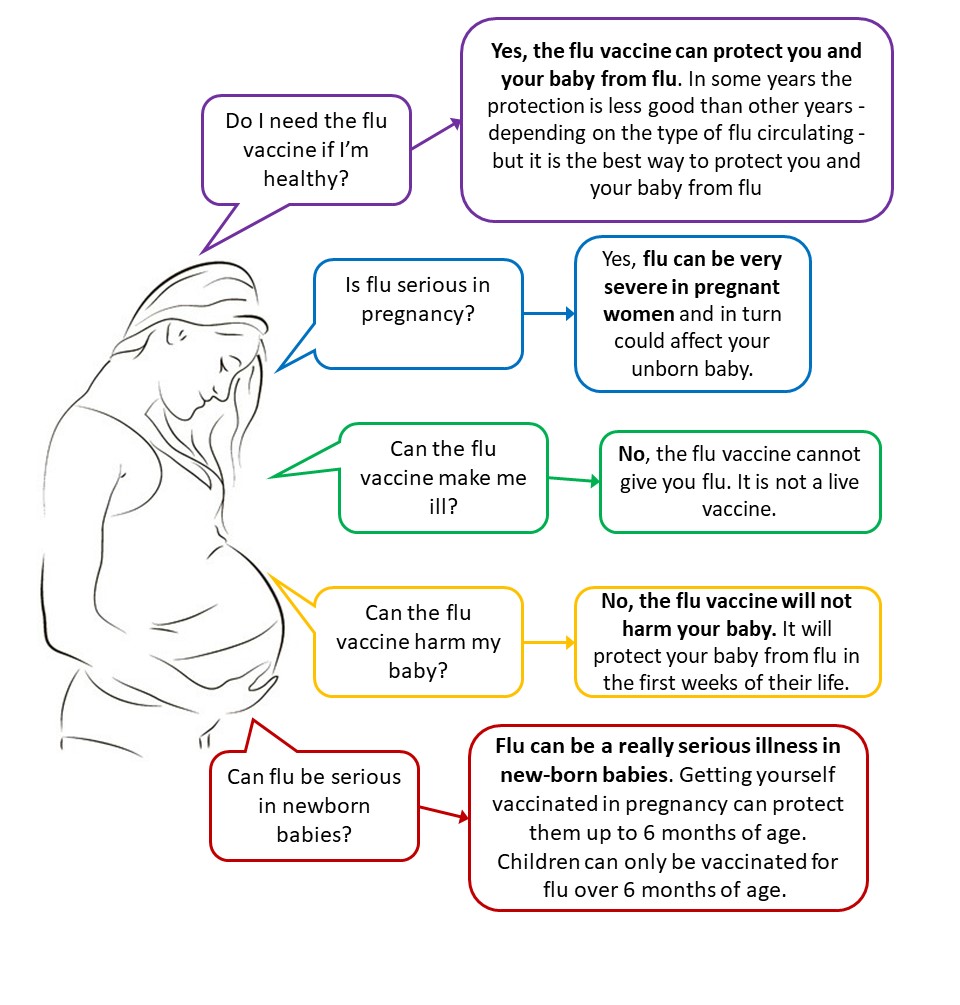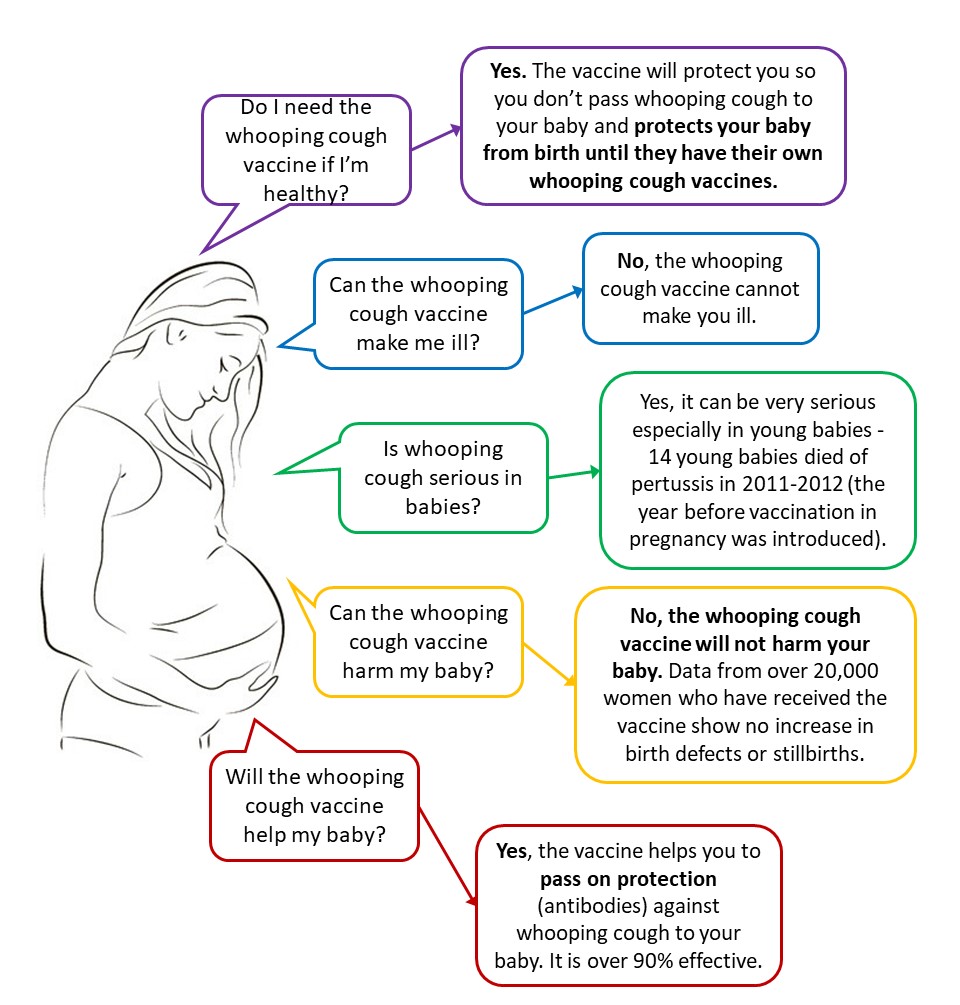- This is a question asked by all pregnant women - all women worry about whether getting vaccinated might harm their unborn baby.
- The flu (influenza) and whooping cough (pertussis) vaccines have been given to hundreds of thousands of pregnant women and have been shown to be completely safe. Data collected on these women has clearly shown that they are not associated with any increase in birth defects or stillbirths. The benefits to both you and your baby hugely outweighs any theoretical risk from getting vaccinated.
- If you are not up to date with the measles, mumps, rubella (MMR) vaccine, this should be given a month or more before you become pregnant. This is because it is a live vaccine, so cannot be given during pregnancy.
Maternal vaccination in pregnancy
Why are vaccines important for pregnant women?
 Vaccines can help keep you and your growing family healthy.
Vaccines can help keep you and your growing family healthy.- Some vaccine-preventable diseases, such as rubella, can pose a serious risk to your health and that of your developing baby. For this reason, you should make sure that your immunizations are up to date before you become pregnant.
- The antibodies produced when you get vaccinated cross the placenta. This means that when your baby is born, they are already protected against infections, even before they are old enough to get vaccinated themselves. This is one of the only ways of protecting extremely young babies against vaccine preventable infections.
- It is safe, and very important, for pregnant women to receive the inactivated flu vaccine.
- Pregnant women who get flu are at increased risk of severe infection and their babies are also at risk.
- Complications from flu can include premature labour, babies that are small for gestational age, hospitalization, and rarely, death.
- Pregnant women can receive the flu shot at any time during pregnancy. It is normally available from September until around January/February each year.
Click here for more information

- Whooping cough is one of the most common vaccine-preventable diseases in the United Kingdom. It is caused by bacteria that spread easily from person to person through coughing, sneezing and close contact. It can be very serious for young babies and can cause them to stop breathing and can even cause death.
- The vaccine should ideally be given from 16 weeks, after the foetal scan, up to 32 weeks of your pregnancy.
Click here for more information





